Suppressor use in the United States has never been more widespread.
These days you can roll up to a public range and almost always see a firearm equipped with a can.
More and more gun shops sell suppressors and Title 2 firearms, in general.
Lots of gun owners utilize suppressors for recreational shooting, competition, home defense, and even hunting.
Suppressors make all forms of shooting more comfortable.
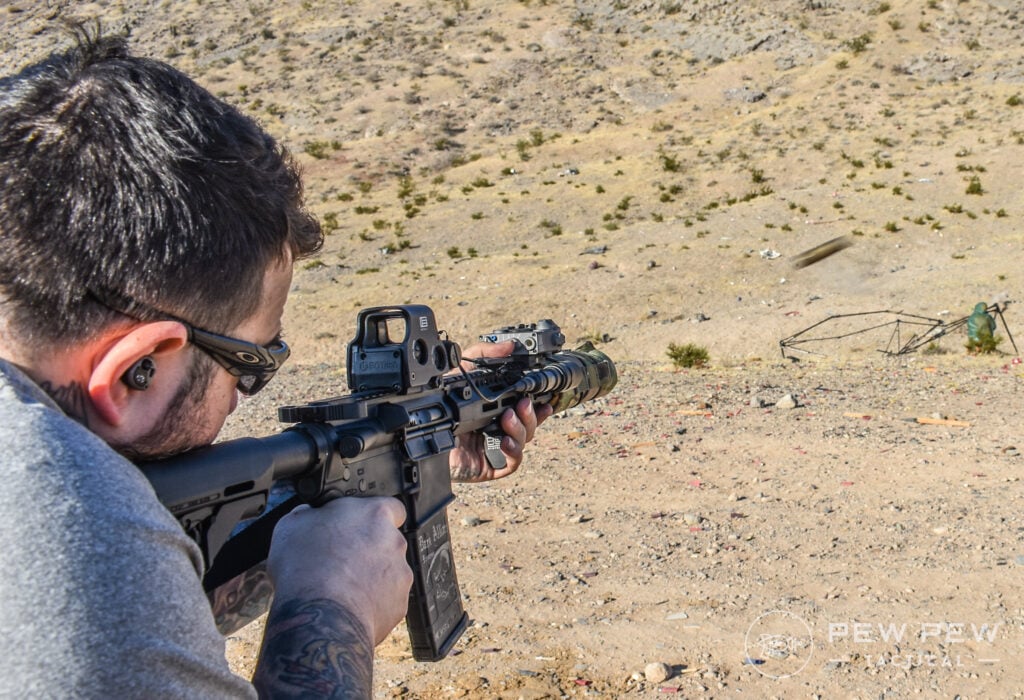
But hunters, in particular, benefit more than most from suppressors.
Why?
Well, that’s the topic we’re tackling today. We’re going to explore the benefits of hunting with a suppressor and why you might want to invest in these nifty tools.
Keep reading to learn more…
Table of Contents
Loading…
It’s Hearing Safe…right?
Right off the bat, you might say, well duh, you can ditch the ear protection!
While, yes, a suppressor makes a gun quieter, it won’t make every gun automatically hearing safe.
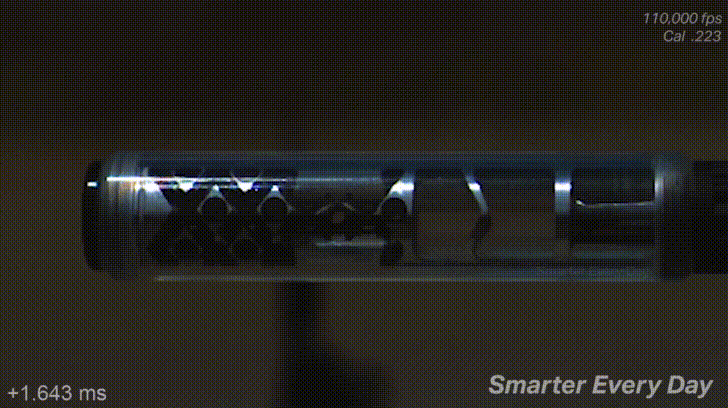
OSHA says any noise 140 dB or more causes hearing damage, and most guns come in well above that.
Further, sustained noises in the 120 to 130 dB range can also cause hearing damage.
A suppressed firearm can still cause hearing loss depending on the firearm and how fast the round is traveling.
If you are hunting small game with a suppressed 10/22 and subsonic loads, then yeah, it’s hearing safe. You could ditch the ear pro if you wanted to.
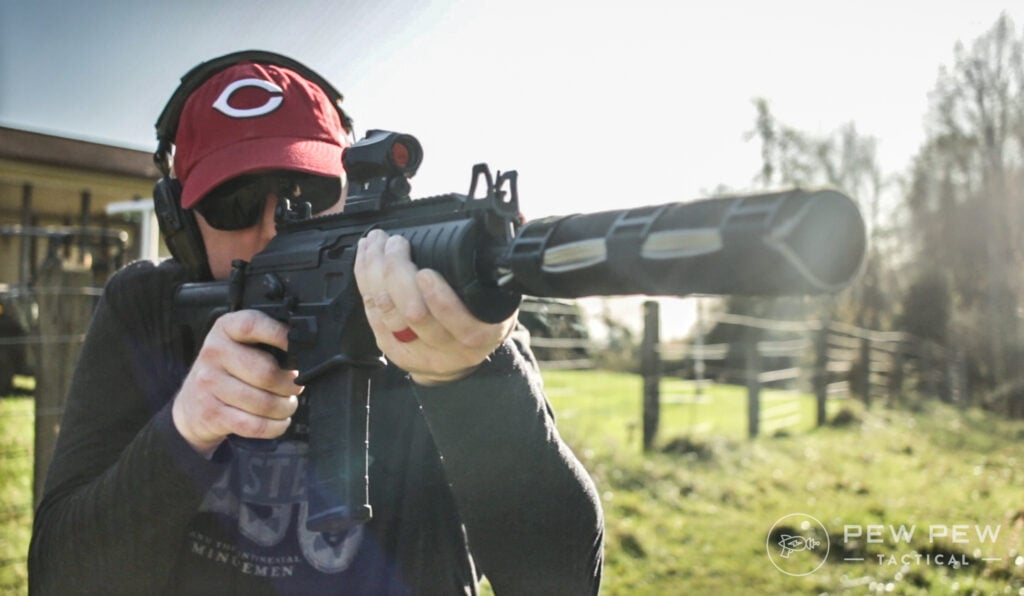
A shotgun equipped with a Salvo 12, for example, meets the hearing safe requirement, bringing the noise down to about 137 dB.
Firing a few shots shouldn’t damage hearing.
Prices accurate at time of writing
Prices accurate at time of writing
-
25% off all OAKLEY products - OAKLEY25
Copied! Visit Merchant
So, if I’m hunting a deer, I can consider not wearing ear pro because I’m likely only going to fire one shot.
On the other hand, if I’m hunting doves and firing several rounds and others around me are also firing off shots, I probably want to keep the muffs on to preserve my hearing.
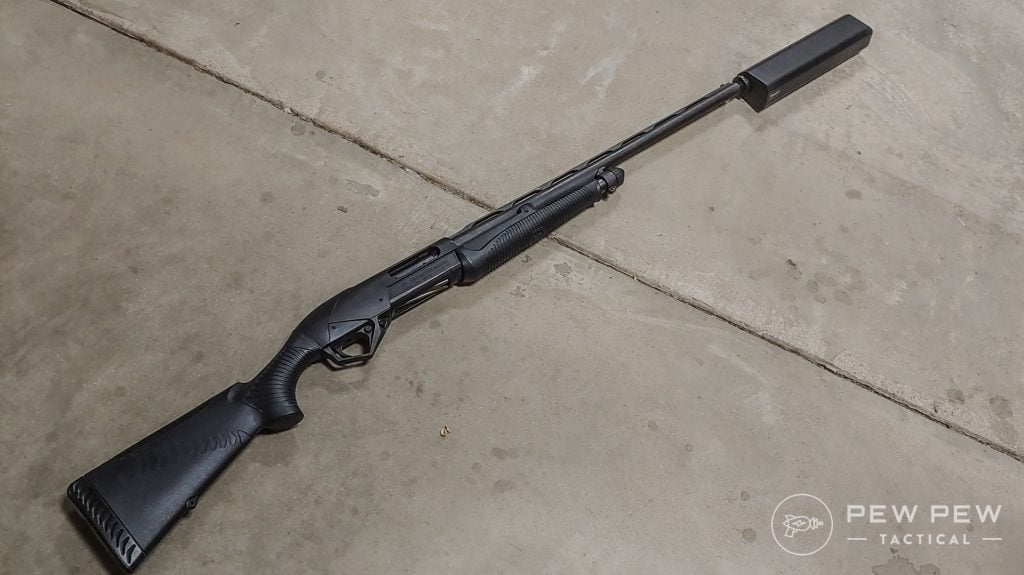
If you hunt with a .223 or .308 rifle, then the suppressor will not make your firearm completely hearing safe.
A good suppressor might bring the noise level of a 5.56 down to about 140 dB, but that’s not enough to completely ditch the ear pro. And that decibel rating will only increase with a high-powered rifle.
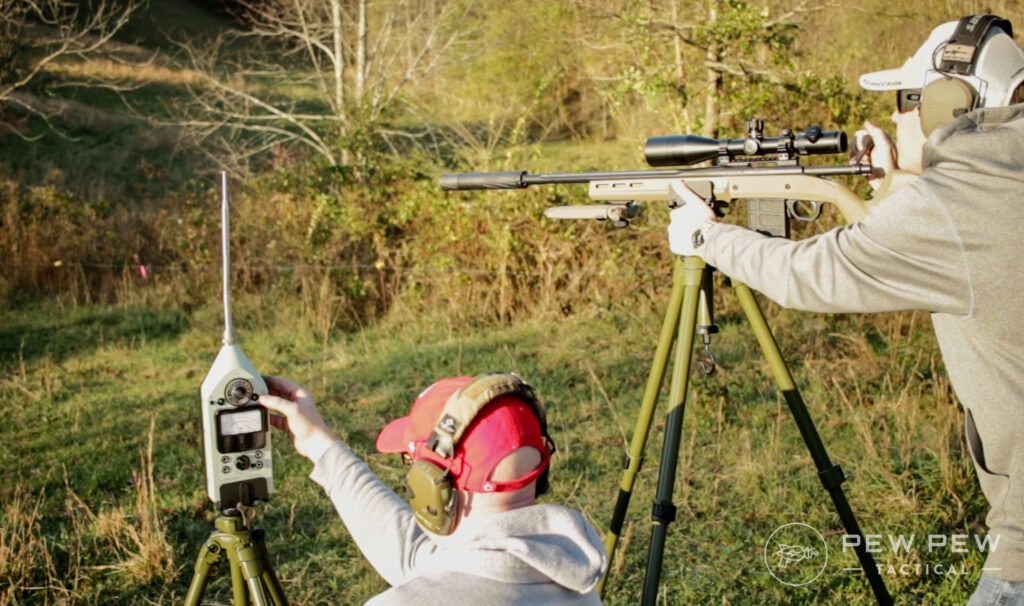
What about .300 Blackout, subsonic ammo, and a can?
Now, that’s a quiet combination, especially with subsonic ammo.
This style of ammo, which operates below the speed of sound, exists for a variety of weapons. But the downside is that you lose velocity and penetration.
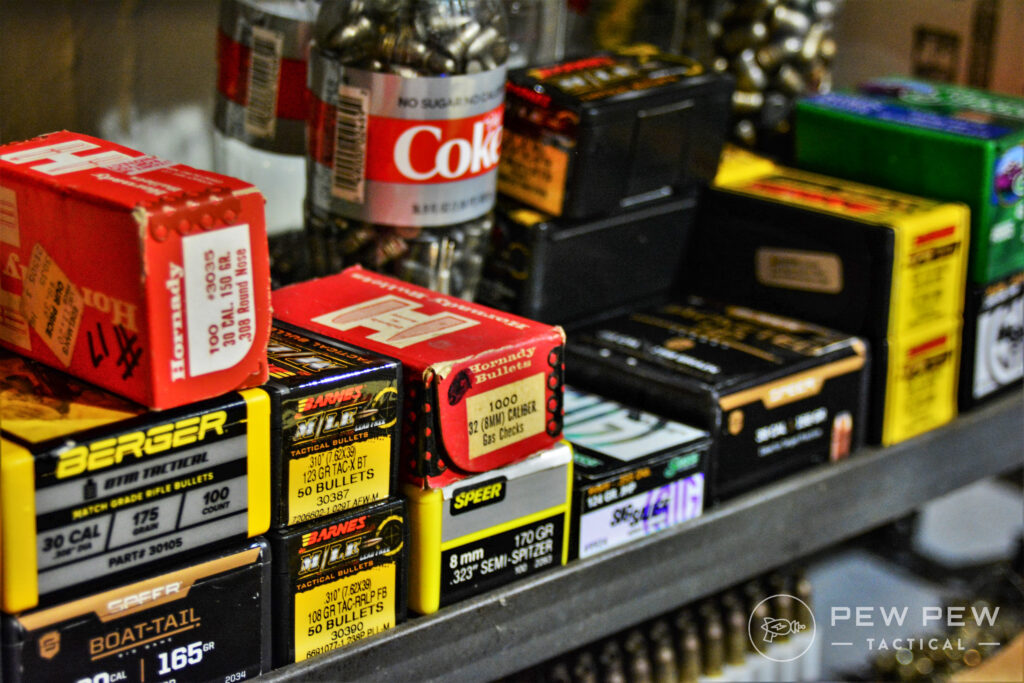
A .300 Blackout 220-grain, subsonic round is basically a .45 ACP.
Can it kill deer? Yeah, but I wouldn’t advise it.
Hunters should be humane, and as such, you don’t want it can kill. You want ‘it will kill,’ and kill quickly and humanely.
So, Why Should I Hunt with a Suppressor?
Glad you asked…
Let’s look at a few reasons I advocate for suppressor use while hunting.
Protects Your Hearing, Obviously
As we previously went over, suppressors are easier on the ears, but why does that matter?
Well, let’s say you use ear protection, like the Walker Razor earmuffs. They reduce the noise of a firearm down by 23 dB.
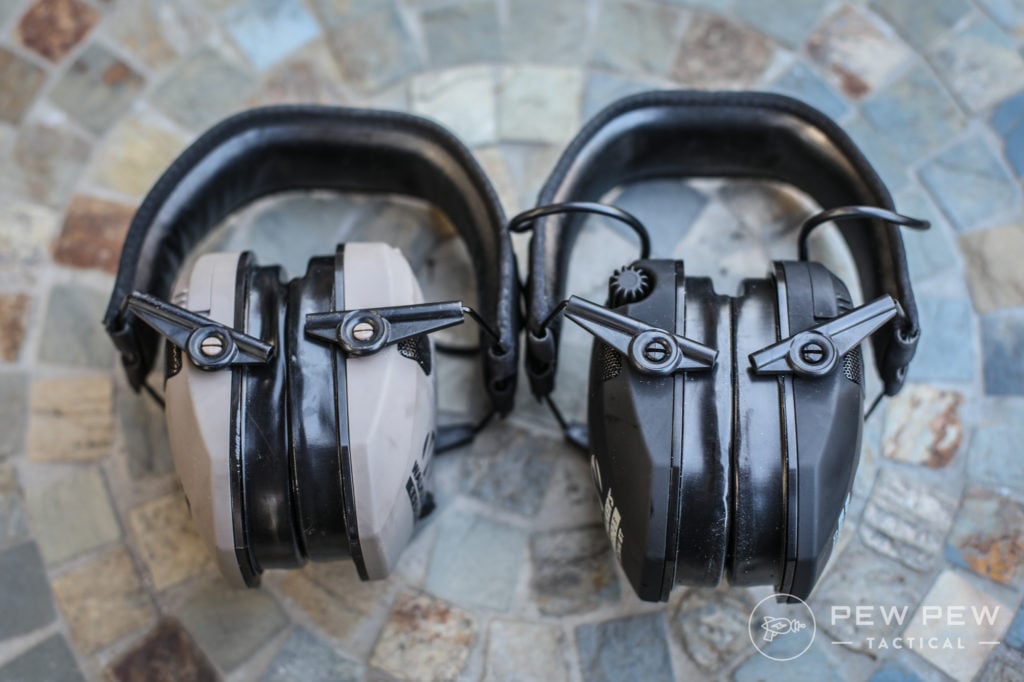
When my .308 fires, it creates a noise measured at 167 dB.
Let’s do the math! 167 – 23 = 144 dB. That’s still above the range to cause hearing loss.
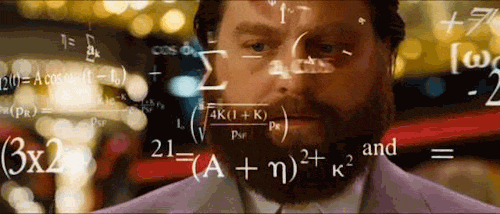
Even with hearing protection, I can suffer damage.
But, when I combine hearing protection with a suppressor, I have a completely safe option for my ears.
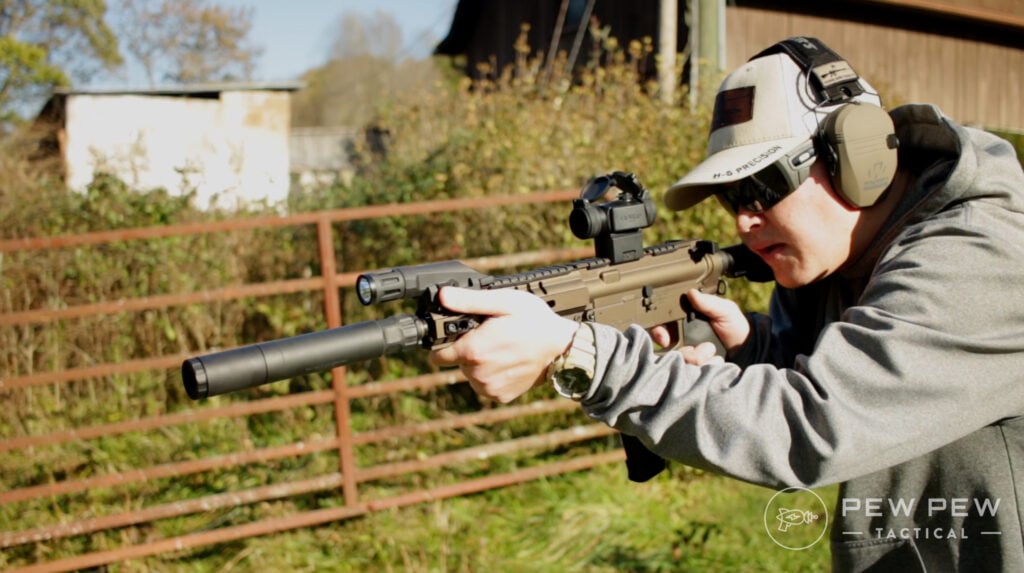
That’s a win!
But that’s not the only reason to consider a can when hunting…
It’s Just Good Manners
The suppressed shot might not be completely hearing safe on its own, but it will be quieter.
So, you’re less likely to scare game away or end the hunt for everyone around you.
I hunt on the same strip of property that my family does. My friend’s Tavor is the ultimate hog hunting beast equipped with a suppressor and red dot.
It’s short and light, and I can fire a few rounds in multiple locations without bothering my dad and his deer hunting.
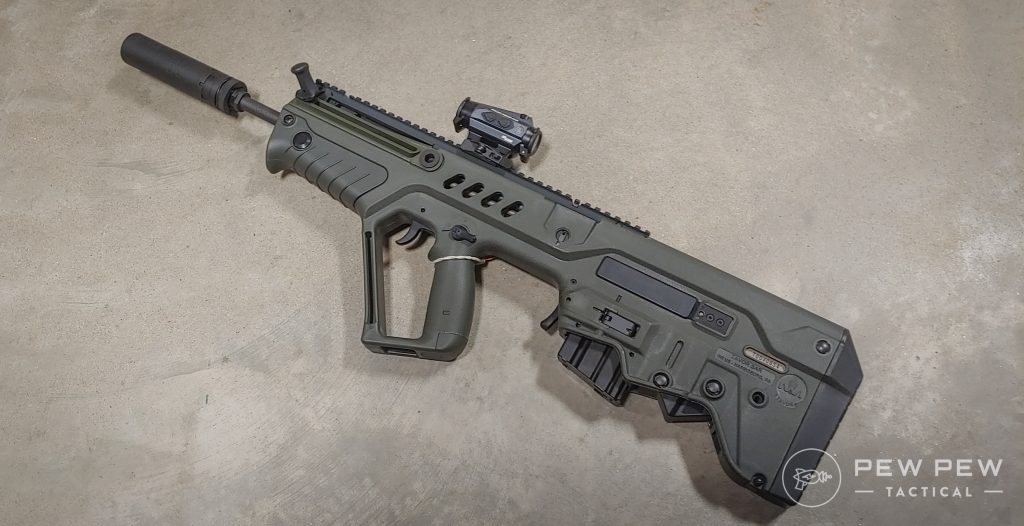
The gunshot will still sound a bit loud but be less disruptive to the environment and fellow hunters.
Muzzle Flash Reduction
Suppressors also reduce concussion and muzzle flash.
And that truly makes shooting more comfortable. It’s less flinch-inducing and a more enjoyable experience overall.
But Travis, it’s just one shot. Is it that big of a deal?
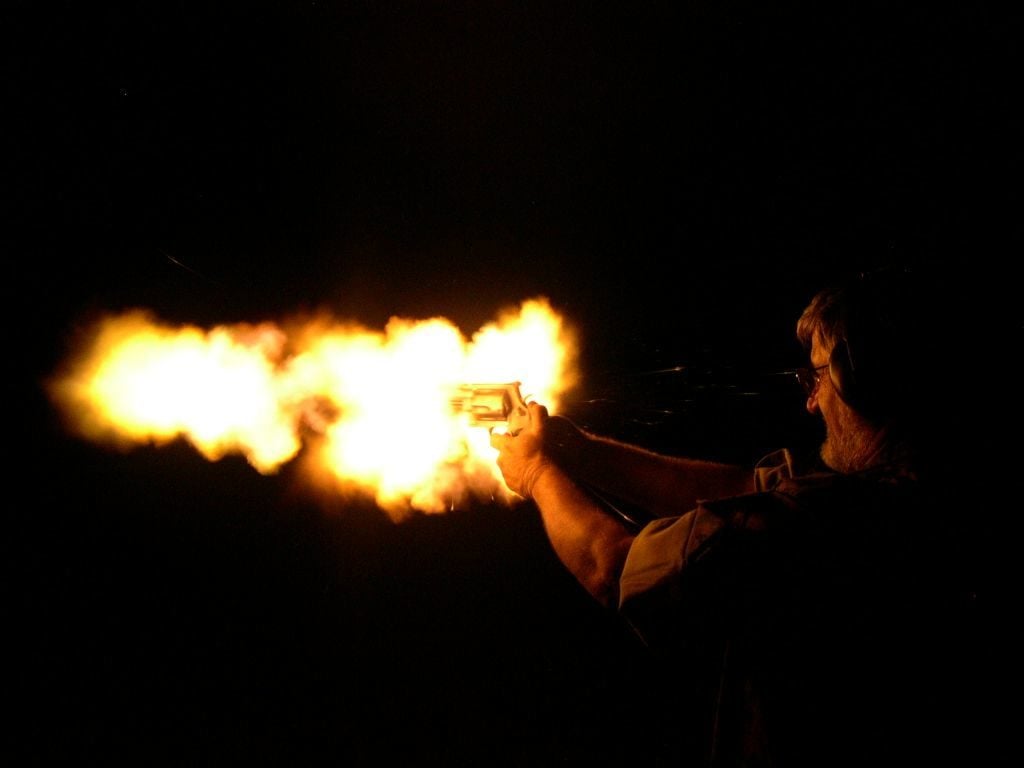
Maybe for some, but when I hunt doves and squirrels, it’s not just one shot. Last time I checked, the bag limit for doves stood at 15.
Doves are tiny, and I’m a big guy. I want my 15 birds deep-fried and delicious, and I want every single one of them.
The comfort is well worth it when shooting and hunting like this.
The same goes for hogs.
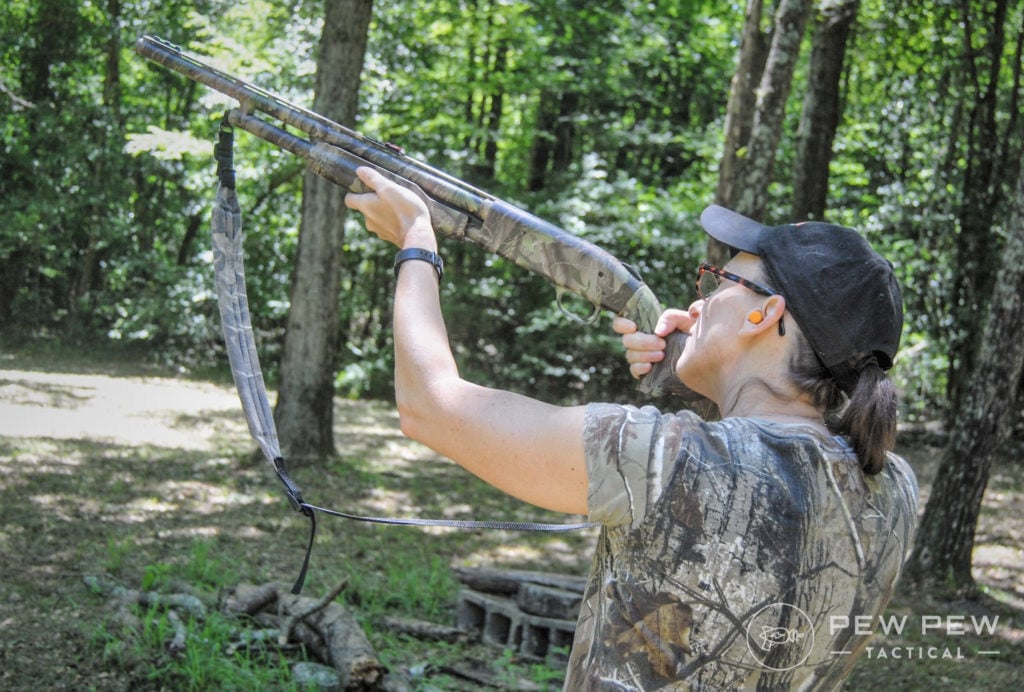
Taking multiple shots is a very real possibility when you deal with packs of animals. I’m sure coyote and prairie dog hunters could say the same.
Suppressors also act like muzzle brakes and reduce felt recoil.
This makes the gun much more comfortable to fire on .308 caliber rifles and 12- gauge shotguns.
Are There Downsides?
There is no such thing as a free lunch. (Except, randomly, the Taco Bell app gives me free meals.)

But in the case of suppressors, there’s no free lunch.
Immediately, a suppressor adds length and weight to your weapon.
Sometimes these devices add up to three-quarters of a pound.
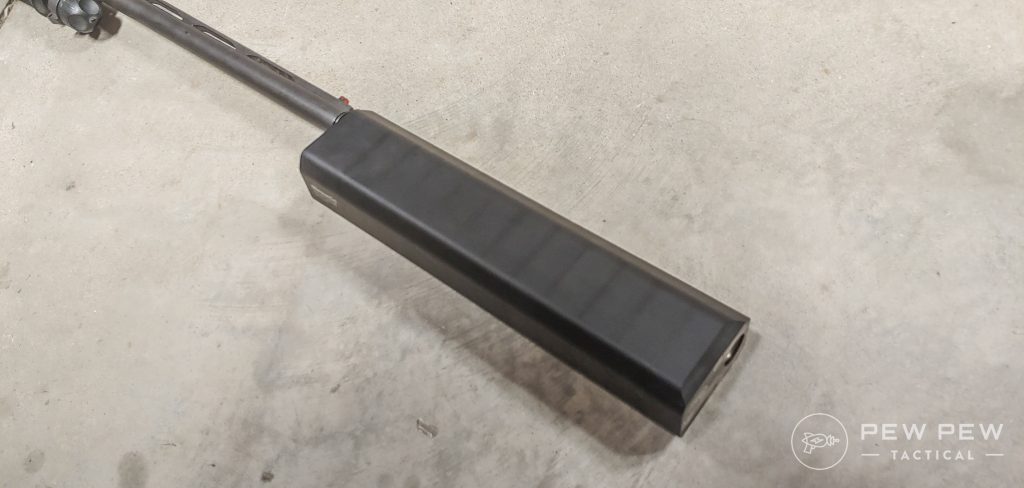
Also, with semi-auto designs, you might get some gas thrown in your face. That always doesn’t feel so great, so be aware of that.
And we can’t forget the additional cost that goes into suppressor purchases.
I’m not talking about the base level cost to buy. Of course, I’m referring to that $200 tax stamp required by the ATF to own a suppressor.
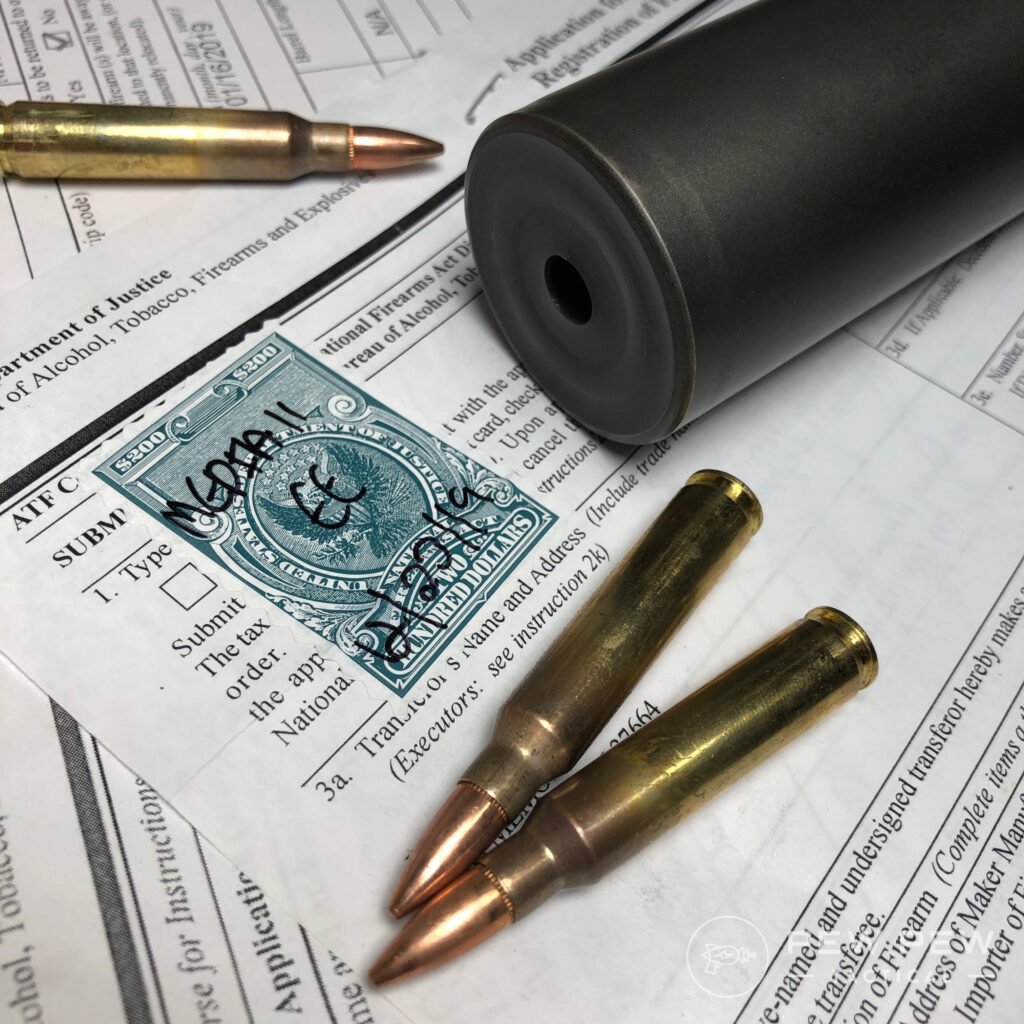
On top of that, you have to submit paperwork for registration and potentially wait months to get ATF approval.
It’s a hurdle, sadly, but one you have to jump over. (To learn more about buying a suppressor, check out our guide on How To Buy a Suppressor Online.)
There is a workaround, though…
The Maxim 50 – a muzzleloader equipped with an integral suppressor.
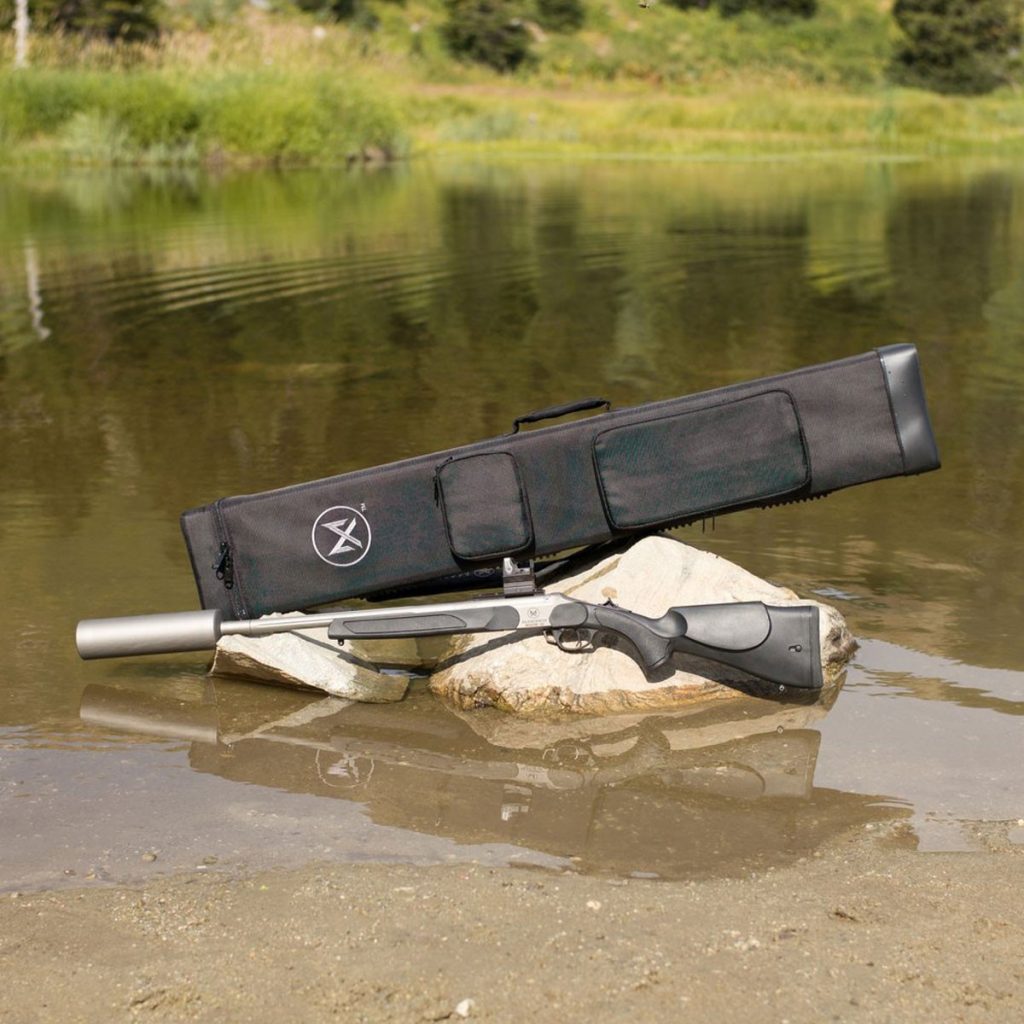
Because it’s a black powder muzzleloader, it doesn’t fall under the same regulations as a centerfire rifle and suppressor.
Prices accurate at time of writing
Prices accurate at time of writing
-
25% off all OAKLEY products - OAKLEY25
Copied! Visit Merchant
Does My State Allow Suppressors?
Kind of a bummer, but not all states allow suppressor ownership. And even some that do won’t let you take it hunting.
At the moment, 42 states permit suppressor ownership, with 40 of those allowing you to hunt with a can.
But before you head out into the field, read up on your state laws to see if it’s legal.
Do Suppressors Encourage Poaching?
A common argument from anti-suppressor crowds is the topic of poachers. Commonly, you’ll hear them argue that suppressors make it easier for poachers.
To be honest, poachers are already doing something illegal, to begin with. So, whether suppressors are legal or not won’t matter to a poacher.
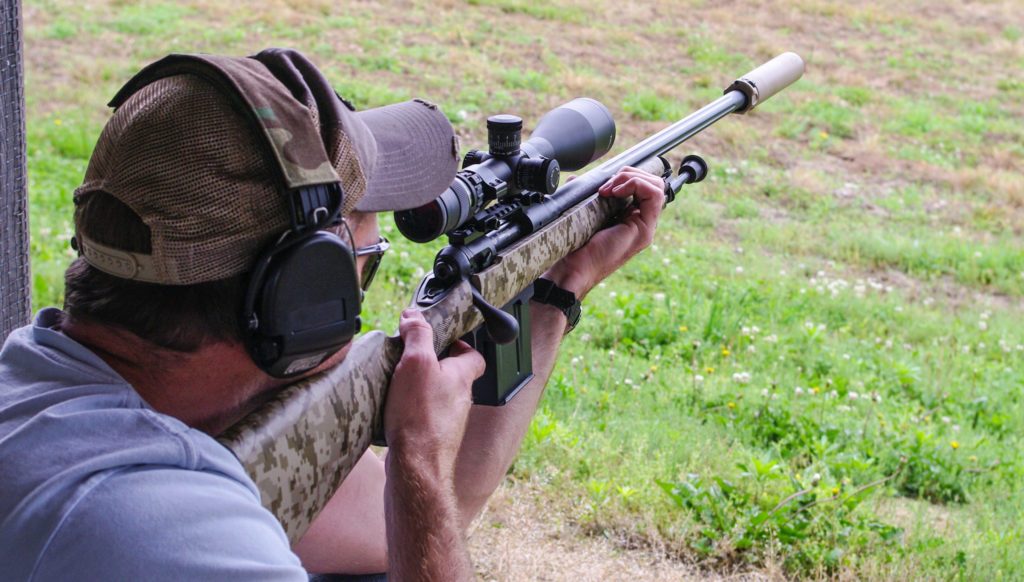
As suppressor ownership has increased, there has been no dramatic rise in poaching with suppressors.
In fact, poaching, in general, is a good way to ensure your rifle and suppressor are forfeited when you’re caught.
Conclusion
Should you hunt with a suppressor? If you want an overall more enjoyable experience, then yes.
Suppressors are quite handy for hunting. So much so, in fact, that loads of countries allow suppressor ownership but also require you to utilize suppressors.
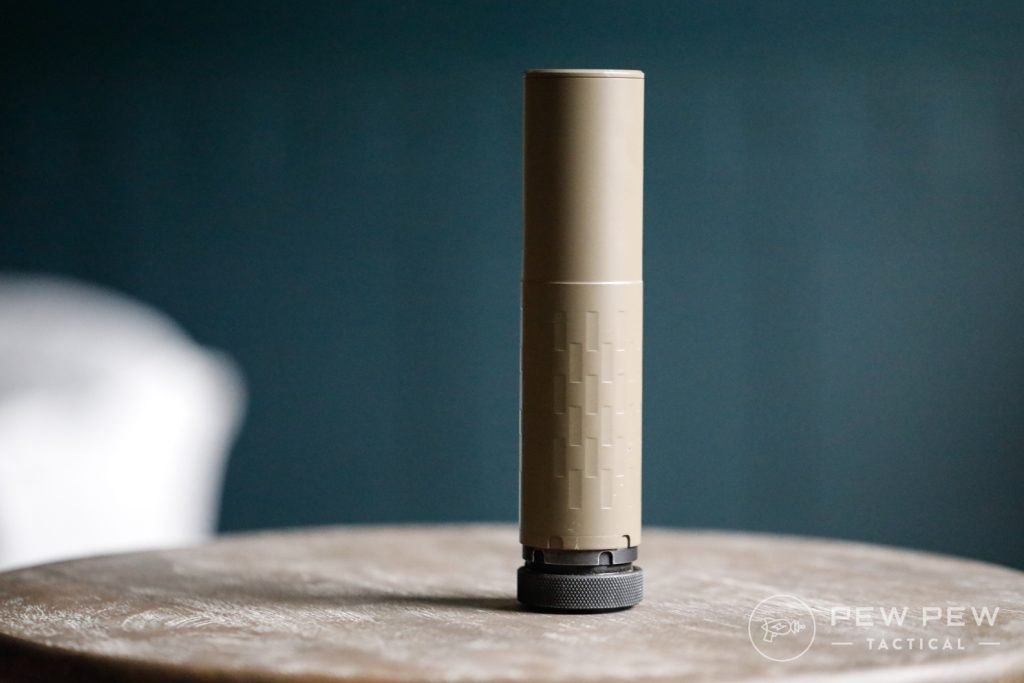
These devices keep things quiet and reduce noise pollution. Let’s face it…it’s just good manners.
Do you hunt with suppressors? If so, which ones, what game do you chase, and what gun do you use? Let us know below. See where you can pick a suppressor up at the Best Places to Buy a Suppressor or check out some models we recommend at the Best AR-15 Suppressors.

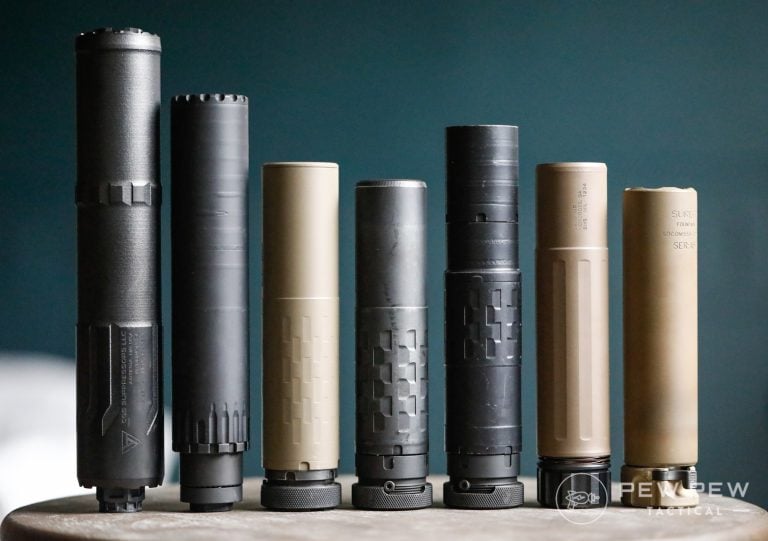
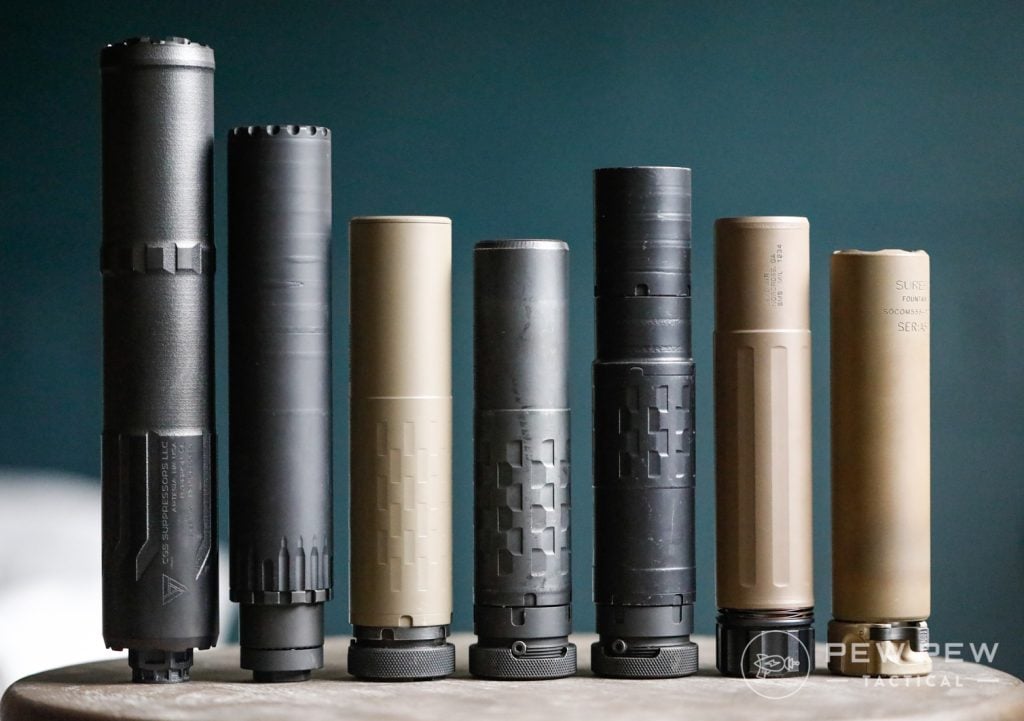






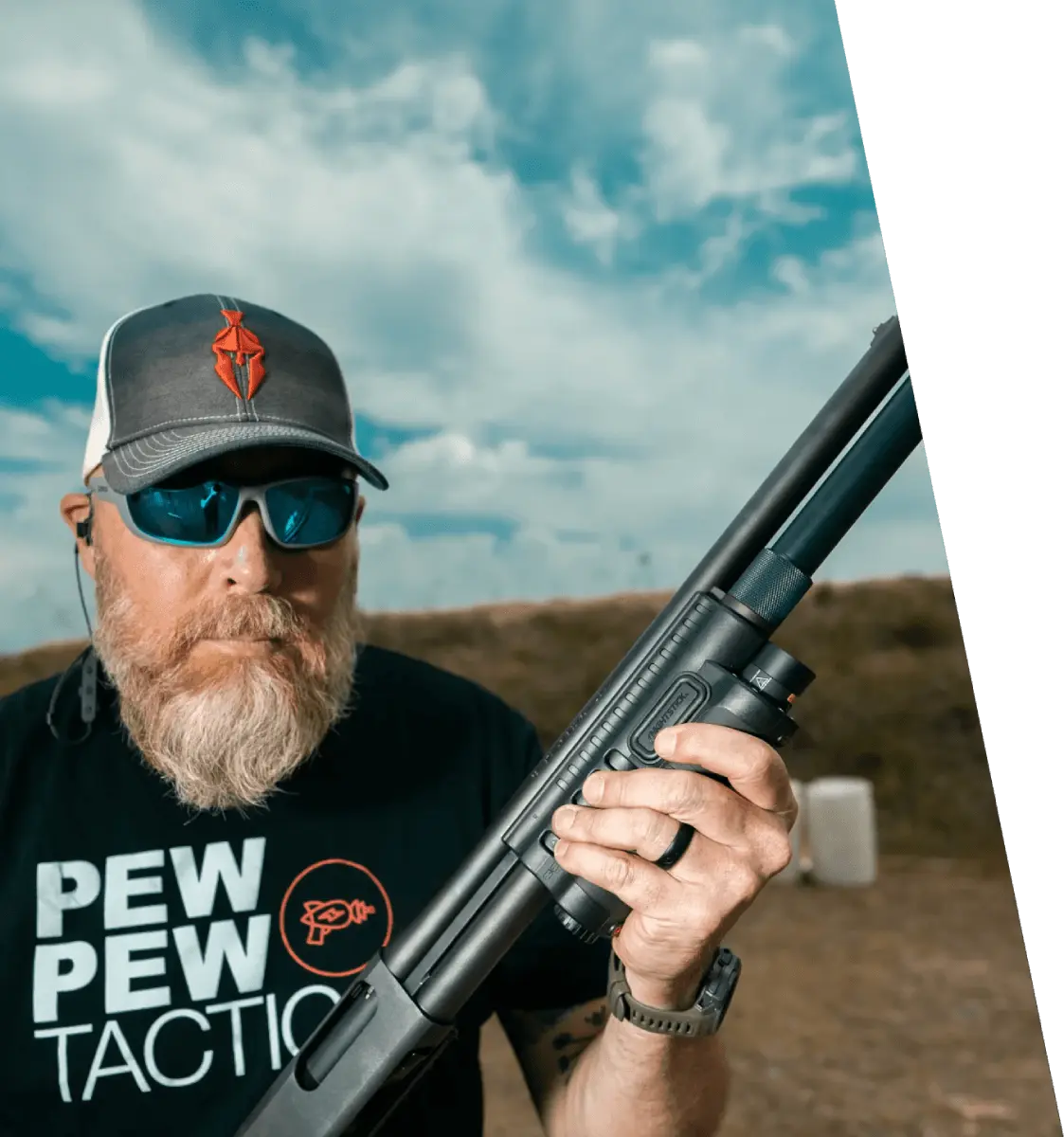

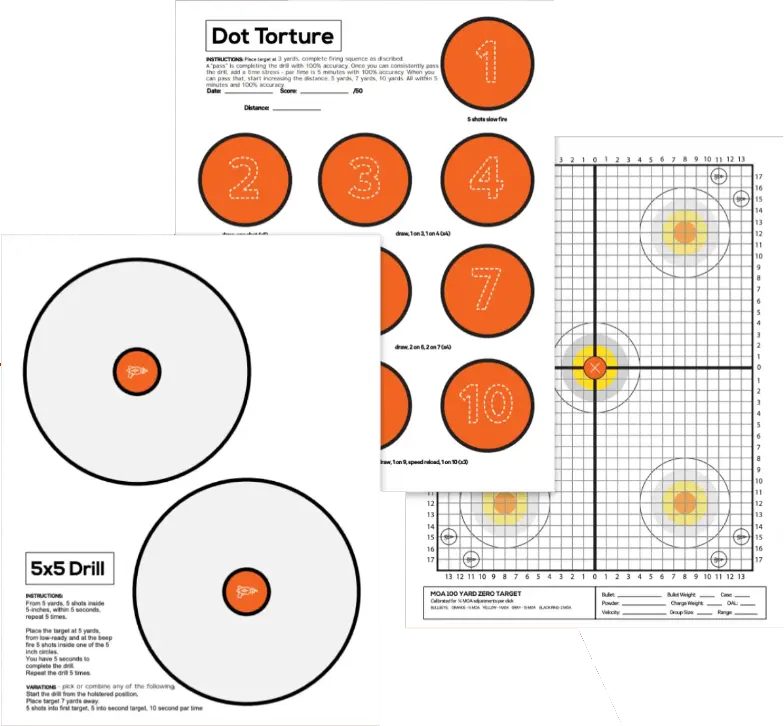
Leave a Reply